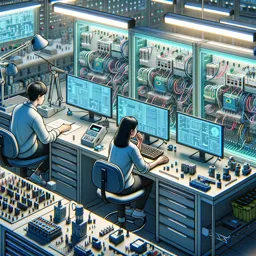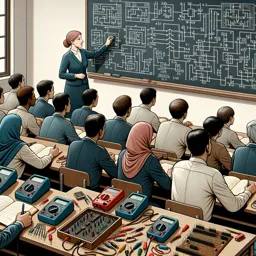Introduction
The growth of solar energy is creating numerous opportunities for electricians. As the demand for clean energy increases, electricians are often on the front lines, ensuring that solar systems are installed efficiently and, most importantly, safely. In this article, we’ll explore essential safety practices every electrician should understand when working with solar energy systems.
Understanding the Hazards
Solar energy systems, like any electrical installation, present unique hazards. Photovoltaic (PV) panels generate direct current (DC) electricity, which can be more dangerous to the human body than alternating current (AC) at the same voltage. Additionally, panels can still produce voltage even when the main grid is disconnected, so standard lock-out procedures must be adjusted.
Personal Protective Equipment (PPE)
- Insulated gloves and footwear: Protect against electric shock when handling live wires.
- Safety goggles: Prevent debris or accidental flashes from causing eye injuries.
- Harnesses and fall protection: Essential for work on rooftops and elevated areas where solar panels are often installed.
Shutting Down Safely
Before working on any solar installation, electricians must ensure the system is safely shut down. This includes isolating both AC and DC components and confirming zero voltage at work areas.
- Use a voltage tester to verify absence of voltage on all exposed terminals.
- Be aware that disconnecting the inverter does not stop the solar panels from producing voltage as long as they are exposed to sunlight.
Managing Fire Risks
Solar installations incorporate flammable materials and wiring that, if damaged or installed incorrectly, can pose fire hazards. Electricians should:
- Ensure all wiring is secure and undamaged.
- Follow manufacturer guidelines for installation and maintenance.
- Use proper conduit and cable management to minimize risks.
Training and Ongoing Education
Staying up to date with the latest solar technology, safety standards, and best practices is essential. Electricians should pursue continuing education and relevant certifications related to solar energy systems for both safety and career advancement.
Conclusion
Solar energy installations provide electricians with exciting job opportunities, but also introduce new safety considerations. Adhering to best practices and prioritizing safety ensures every project is completed successfully and without incident.































